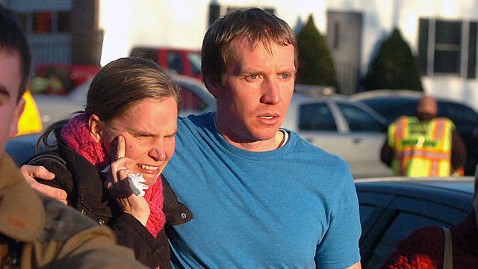MUZAFFARABAD, Pakistan - Sania was just a schoolgirl when she logged onto an Internet chat room and met a young college student called Mohammad. They fell in love and decided to get married.
Internet dating in the West is now so common that it is no longer considered an act of shameful desperation but an acceptable way for busy professionals to discover a like-minded partner.
But for Sania, the 22-year-old daughter of a conservative truck driver in Pakistan, online romance and her subsequent marriage has meant repeated beatings and death threats at the hands of her relatives.
"No one gets married outside our community. It is our tradition," Sania told AFP. She is from the garrison city of Rawalpindi and Mohammad comes from Muzaffarabad, the capital of Pakistani-administered Kashmir.
At first she and Mohammad chatted online. Then they both bought mobiles to continue their relationship by telephone. For several years they asked their parents for permission to marry, but were refused.
So Sania decided to escape.
She packed a bag and sneaked out while her brother was at school, her mother sleeping and her father out at work. She took the bus straight to Muzaffarabad.
"I spent the four-hour journey in fear. I kept thinking that if my family caught me, they'd kill me," she told AFP.
In Muzaffarabad, Mohammad met her off the bus and they got married immediately. But while his family quickly accepted Sania, nearly two years later the couple still live in fear of her relatives.
Twice they have dragged her back to Rawalpindi since her marriage and have demanded repeatedly that she break off relations with Mohammad.
"Last time they took me back three months ago and put lot of pressure on me to break off this relationship. I got in contact with my husband and asked him to fetch me. I escaped from the house at midnight and we managed to flee," she said.
Now Sania and her 24-year-old husband have moved to a new one-room house in a slum, changed their phone number and dare not venture out of the city.
"They say they will kill us whenever they find us," Sania says.
Women in Pakistan who marry against the wishes of their parents are ostracised or even killed by male relatives for supposedly bringing dishonour on the family.
But online relationships are a new phenomenon.
More than 2.1 million people are officially estimated to have access to the Internet in Pakistan, a drop in the ocean of the population of 180 million, a reflection of the huge disparity in wealth and literacy.
Mohammad Zaman, professor of sociology at Quaid-e-Azam University in Islamabad, who has written a book about marriage, says arranged unions that have dominated for centuries are on the wane.
"Internet marriage is a new trend emerging in Pakistan. Technological advancement has entered into our homes and traditional taboos are slowly vanishing in educated and affluent families," Zaman told AFP.
Online, they can share personal information and swap photographs -- things that would be restricted or prohibited in the traditional selection of partners.
The Internet is changing mindsets, giving young people freedom and privacy, and a forum to discuss matters frowned upon by Pakistan's traditional, conservative society.
"There is a kind of emancipation in society and young people want their say in the selection of their future partner," Zaman said, although he conceded that parents find it easier to accept a son's choice than that of a daughter.
Tahir, a Pakistani peace activist, knows only too well how the freedom of the Internet can collide with the restrictions of everyday life -- not only conservative sensibilities but politics and war.
The 26-year-old fell for university student Nazia on Facebook and Skype.
All fine and good, except that Nazia lives on the other side of one of the most heavily militarised borders in the world -- that which divides the Himalayan region of Kashmir between India and Pakistan.
Twice India and Pakistan have gone to war over Kashmir. Although tentative peace talks resumed last year, travel is tightly controlled.
Only those with special government permits are permitted to cross and take the bus service that runs once a week from Muzaffarabad to Srinagar, the capital of the Indian-administered portion.
Last month, a 22-year-old Indian girl was reportedly detained after trying to cross the Line of Control, as the de facto border is known, to meet her boyfriend from Pakistani-administered Kashmir, whom she allegedly met on Facebook, and to escape an arranged marriage at home.
Not even modern methods of communication are reliable.
"Sometimes when I speak to her on Skype, I can see her but there is a lot of noise and we cannot understand each other," said 26-year-old Tahir, not his real name.
He says people in Indian Kashmir cannot call those in Pakistani Kashmir and that it can take three or four days for her to receive his text messages.
If the Internet is the only place Tahir and Nazia could have met, Kashmir is probably the last place they could ever meet in person.
"We understand each other from both sides of Kashmir, but they can't come to our side and we can't go there.... I love her a lot and don't think I can live without her, but I've decided there is no future," he told AFP.
- AFP/ir















